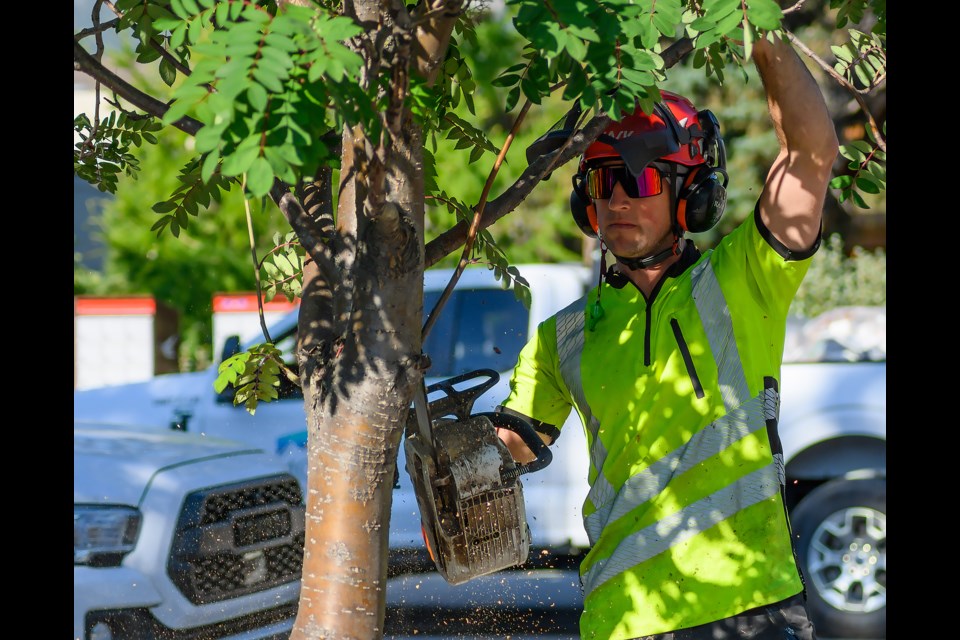CANMORE – Anyone with a wildlife attractant on their property or caught feeding wildlife in Canmore’s boundaries could face a stiff fine.
A property owner or occupant who has a wildlife attractant – such as a fruit tree – or is feeding wildlife will face a $1,000 fine for a first offence after council made the change at its June 4 meeting. A second offence will jump to $5,000 and a third and subsequent fine will be $10,000.
The uptick in the fine is hoped to be “a greater incentive or greater financial deterrent for property owners to remove their fruit or potentially their tree in a timely manner,” said Greg Burt, the Town of Canmore’s supervisor of municipal enforcement.
“It’s a more serious offence.”
Under the previous bylaw, a first offence was $250 and went to $500 for a second offence and $1,000 for third and subsequent offences.
The changes stem from council approving for planning purposes the human-wildlife co-existence implementation and action plan in March, which outlines a series of recommendations to minimize interactions between people and wildlife in the municipality.
In addition to increased fines, recommendations were also made to boost funding to encourge people to remove fruit trees and install wildlife exclusion fencing for Lions and Millennium parks.
Mayor Sean Krausert said the increase is “being consistent on our level of seriousness with respect to discouraging wildlife attractants and making them a higher offence for the greater harm.”
Burt said in 2023, there were 38 tickets and 99 warnings issued under the Town’s community standards bylaw. He added the top three were people failing to remove ice and snow on sidewalks in front of their homes, having wildlife attractants on their property and noise-related issues.
A staff report highlighted the Town’s peace officers enforce the bylaw when they receive complaints, but also do proactive patrols to educate property owners and residents “about the requirements to remove fruit and wildlife attractants from their properties, promote and highlight the fruit tree incentive program and when needed, conduct enforcement if property owners fail to remove wildlife attractants from fruit trees.”
In addition, the fine structure for the community standards bylaw will also be standardized to have all fines without higher penalties begin at $250 for a first offence and go to $500 for a second offence, then $1,000 for third and subsequent fines.
“This standardization is being proposed so there is consistent understanding within the community that fine amounts will increase if a peace officer reattends for the same offence,” stated the staff report. “Administration believes this bylaw amendment will result in greater compliance with the community standards bylaw.”
The changes in the fines align with the Town’s waste and recyclables bylaw when it comes to disposing of food waste and cooking oil that may impact wildlife.
Coun. Tanya Foubert said the changes in fines will “make sure our peace officers have the ability to write those tickets to the owner of the property, that’s a particular wording change that can really increase the amount of deterrents as well as accountability for property owners.”




